Interview avec Alexander C. Bennett
Doctorat en études des Budo & 7e Dan Kendo Kyoshi
ndlr: Cet article fut publié initiallement sur la version anglophone du blog Seido en juin 2017.
La recherche universitaire sur la culture et l'histoire du Budo est importante, et sa popularisation sous diverses formes est au moins aussi importante que la recherche en elle-même. Alex Bennett fait les deux, et il le fait bien. Présentation de l'interview d'Alex Bennett par Jordy Delage.
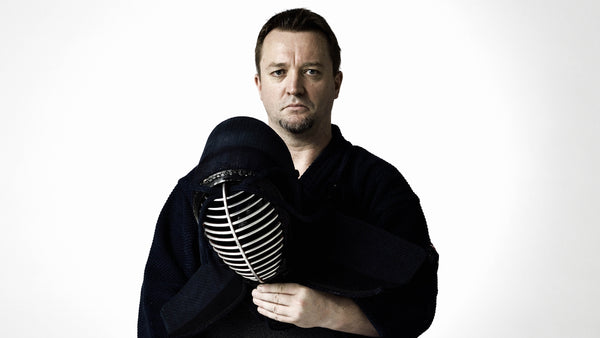
Alexander C. Bennett
Je m'appelle Jordy, je suis le fondateur de la marque d'équipement de Budo Seido. Les Budo japonais font partie intégrante de ma vie depuis mon adolescence.
Je suis également passionné par l'histoire du Japon et je tiens à soutenir tous les chercheurs au mieux de mes capacités. C’est pourquoi j’ai contacté Alexander C. Bennett, après avoir lu son livre "Kendo, Culture de l’épée", pour parler avec lui de l’histoire et de la culture du Budo.
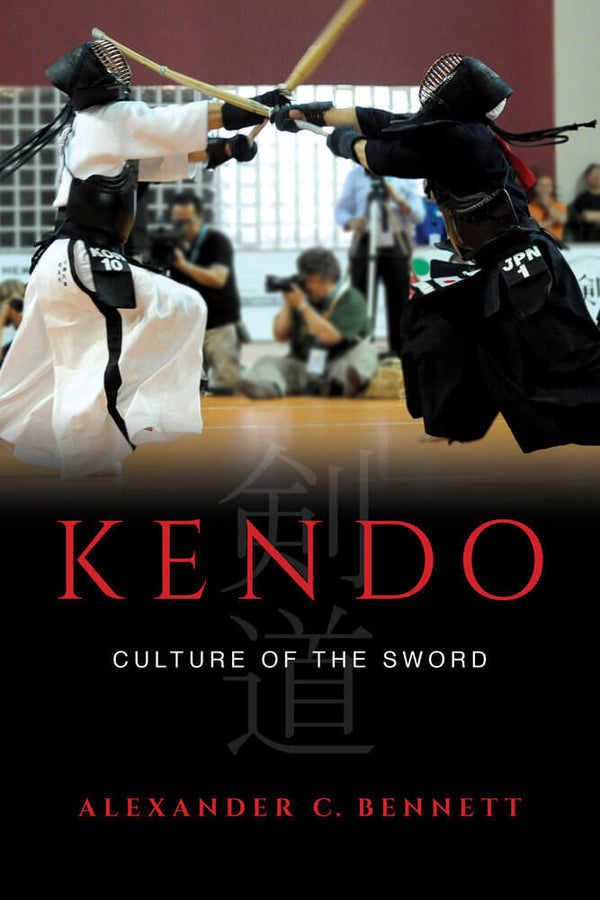
Kendo, Culture de l'épée - par Alexander C. Bennett
J'ai lu de nombreux livres et recherches, que ce soit de Ellis Amdur, Guillaume Erard, Stanley Pranin ou Peter Goldsbury pour n'en nommer que quelques-uns. J'ai également suivi des cours de culture japonaise dans l'une des universités les plus renommées au monde dans le domaine des recherches japonaises. Je dois cependant admettre que je n’ai pas su encore tirer le meilleur parti de tout cela.
J'ai été impressionné par le travail de Bennett. La plupart de ses livres peuvent être considérés comme des vulgarisations, en particulier ceux en japonais, mais je me suis rendu compte qu'ils accordent de l'importance à populariser un sujet (correctement, en racontant la vraie histoire) pour diffuser la culture. Bennett est un incroyable chercheur.
Bennett détient deux doctorats, l'un en sciences humaines de l'Université de Canterbury et l'autre en sciences de l'Université de Kyoto. Il est classé 7ème dan Kyoshi en Kendo, 5ème dan en Iaido et Naginata, 3ème dan en Jukendo et Tankendo.
Il est professeur à l'Université de culture et d'histoire japonaise du Kansai, enseigne le Kendo, est vice-président de la Fédération internationale de Naginata, membre du comité international de la Fédération japonaise de kendo, directeur de l'Académie japonaise de Budo, co-fondateur de Kendo World Magazine et auteur de plusieurs livres en anglais et en japonais.
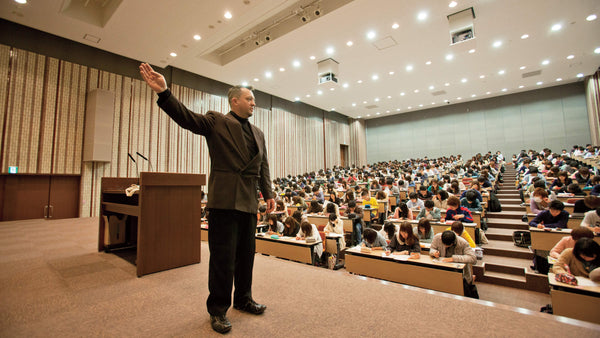
Alexander Bennett à l'Université du Kansai
Malgré un curriculum vitae aussi lourd, c'est une personne extrêmement humble et accessible. Loin de ce que vous rencontrerez chez la plupart des professeurs japonais de haut niveau (et de certains non-japonais également), Bennett est quelqu'un qui vous fait sentir que l'éthique et la morale des Budo peuvent nous transcender.
Avant d’entrer en contact avec lui, j’ai fait quelques recherches et je me suis rendu compte qu’il était "conseiller" pour l’un des concurrents de notre marque, j’ai donc hésité un moment... puis j’ai pensé "Pas question que je laisse ça m’arrêter. Si mon entreprise fait obstacle à ma croissance personnelle, c'est un échec." Et ce fut la bonne chose à faire.
Cependant, et bien que l'interview soit disponible sur la chaîne YouTube de Seido, il est important pour moi de ne pas lui donner une approche commerciale, j'ai donc repensé un nouveau logo appelé "Budo Studies" et supprimé tous les éléments commerciaux que nous incluons habituellement dans nos vidéos. J'ai également veillé à ce que la vidéo ne soit liée à aucun contenu commercial. Et pour être honnête, je viens d'inclure une mention "avec le soutien de Seido Co., ltd." car le matériel de l'entreprise a été utilisé pour le tournage.
Ce point ne poserait pas de problèmes au Japon, mais en tant que Budoka, il était important de préciser cela et de mettre les choses au clair.
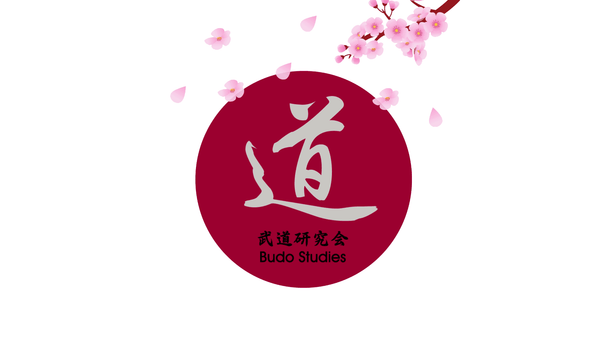
Logo Budo Studies de Seido
Nous avons d'abord échangé pendant une heure ou deux puis avons convenu de nous rencontrer pour une entrevue. Je dois admettre que je n'ai jamais autant aimé travailler sur un projet. C’est un orateur extraordinaire, et même après avoir écouté l’interview des dizaines de fois pendant le montage, j'éprouvais toujours autant de plaisir.
Quoi qu'il en soit, ce que j'essaie de dire ici, c'est que si vous vous intéressez à la pratique du Budo, et ce, quel que soit l'art que vous étudiez, vous devez écouter ce que Bennett a à dire.
Vous pouvez être d'accord ou pas, vous pouvez l'aimer ou non, mais vous ne pouvez pas l'ignorer si vous accordez de l'importance aux enseignements du Budo. Il y a trop peu de personnes avec ce niveau de connaissances et de rigueur prêts à les partager avec le monde.
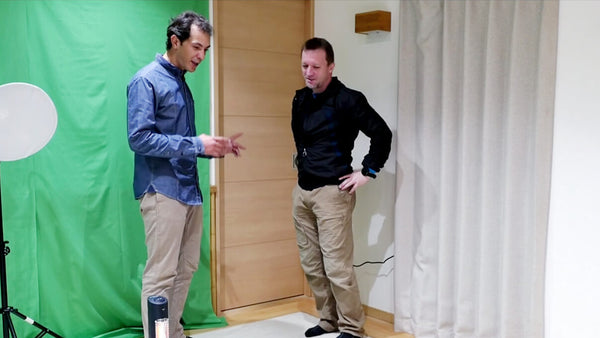
Interview avec Alex Bennett
Cette interview est divisée en 11 épisodes au total.
Je la considère comme une "première saison", car j'espère que nous aurons d'autres discussions, interviews et donc plus de "saisons" à l'avenir.
Vous trouverez la playlist YouTube ci-dessous. Des épisodes seront ajoutés au cours des prochaines semaines, et nous devrions atteindre la fin de la saison avant la fin de l'été 2017.
Playlist de l'interview sur la chaîne Youtube de Seido
Profitez-bien !

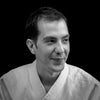
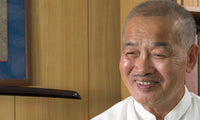
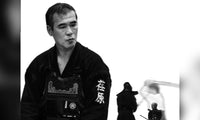
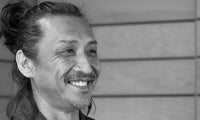
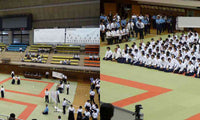
10 commentaires - Interview avec Alexander C. Bennett - Doctorat en études des Budo & 7e Dan Kendo Kyoshi
Dear Sirs,
I am Jindra Ziegelheim from the Czech Republic and I am looking for an email contact for Alex Bennett. We met in Japan at Ozawa sensei’s dojo (Kobukan in Tokyo) some time ago, but later I have lost the contact.
I would be glad if you could kindly help me,
Thank you in advance,
Sincerely Yours
Jindra Ziegelheim
Kendo 7th dan
How does Alexander C. Bennett balance the academic and practical aspects of Budo in his work, and why is that balance important? Greeting : Ekonomi dan bisnis
I really think you are missing the point of Budo.
You are basically saying that Budo are based on arts of war so they are not suited to the modern world… well, you’re ignoring the work of educators and pacifists who theorized those MODERN systems.
Whatever the Budo your practice, you actively seek weaknesses in your opponents. But:
1) your opponents are actively asking you to do so, so they can find and fix their own weaknesses.
2) you do so with kindness.
And both points work as a feedback loop. The more your fellow Budoka help you fix your weaknesses, the kinder your become.
Surprise, fear, doubt and confusion become more familiar, and you gradually acquire control of those feelings.
This will allow you, outside the Dojo, to spot those weaknesses in others and help them go through them, in a different context.
You can deny Reiho, but this is an opinion, a belief.
Many Budoka really believe in “Utte Hansei, utarete Kansha” (when you cut your opponent, you must reflect back on your cut. When you are struck, you must appreciate your opponent for teaching you your weakness).
Budo is a toolbox that you use in the Dojo. Your toolbox changes depending on context.
If the point is to say that toolbox can only be used to do wrong, well, many people have prooved otherwise. If the point is to say that not all Budo people are good people. Sure, Budo is a tool, not a religion or a magical force that turns everyone into teddybears.
My opinion is that it is not possible to truly understand what it is to really be able to connect with others, read them, to have the ability to decide if you want to be kind or not, without having reached a certain technical level in Budo.
You are not a good people person because you cannot hurt others. You are a good person when you can but decide not to.
These values are also watered down in sports Budo (such as Judo, a part of Kendo, etc.), but you cannot define Budo by looking at those who are lost on the way.
Your judgment seems to come from experience, so you are putting on trial the failures of Budo as you experienced them. There are many failures. It’s an approach, but it cannot be used to condemned Budo as a whole.
Le met state that I do understand and recognize the failures of Budo. Many people have been fooled by bad teachers. I’ve seen many cases of Budo bashing throughout the years, and in almost all of them, the reason was that they were abused at some point. They were criticizing the teaching they received believing that it represented Budo as a whole.
That’s definitely something we must fight against, and our work is also about this. Publishing reliable information and busting myths serve to reduce the size of the toolbox of those manipulative Budo teachers.
Sure, in order to pass at the kodansha level in kendo, there must be a logic for your attack combined with a certain gravitas and elegance to your movement.
In order for that logic to occur, you must create that opportunity, in other words you must make the opponent move in the way that you want them to via physical and mental dominance. You inflict the 4 kendo sicknesses: surprise, fear, doubt, confusion upon your opponent. Then you ruthlessly exploit these weaknesses in your opponent to manipulate them and take what you want from them!
If you were to do these same things outside of a martial arts context, you would be a total and complete jerk. A person seeking perfection of their own character does not exploit the weaknesses of others in order to satisfy their own selfish desires and improve in ranking. If you go around intimidating and dominating other people in the workplace, you are going to get a call from human resources. It is a quick way to lose friends and make enemies, and really only appropriate in a self defense scenario.
Merely using reiho as a cover for the actual behaviour does not mean you do not train "negative" personal characteristics. Thus we have a discontinuity on the following principles from the stated purposes of kendo practice by the ZNKR:
To hold in esteem human courtesy and honour:
Yet you cultivate discourteous and dishonorable behavior in training as you advance over the years.
To associate with others with sincerity:
yet you use deceit to exploit weaknesses in others.
And to forever pursue the cultivation of oneself,
Yet you are cultivating and demonstrating negative personal characteristics.
To contribute to the development of culture,
And to promote peace and prosperity among all peoples.
Yet, you learn to develop skills that create disunity among others, dominate others, and create prosperity for yourself.
Oscar,
Well, this is certainly open to debate.
But as a starting point for debate, I would be careful about not essentialising Budoka.
People practice for various reasons and with very diverse motivations. Becoming better implies the will to do so and some might not have this goal.
I would also ask the question, would those people with a bad behavior be different (better or worse?) if they were not practicing Budo.
Regarding the grading system, I don’t see what you mean.
Best
Jordy
Jordy,
I’m quite familiar with the history of kendo, the need to make changes post war due to the addition of more militaristic characteristics in the 1930s. The above statement by the ZNKR gives a banner to rally about. Its great sounding platitudes.
I do have serious reservations though about how effective it is. Having trained a couple decades in kendo and iaido I have seen all sorts of bad behavior by instructors in kendo, judo and other arts. Likewise the ZNKR bribery scandal a few years ago calls into serious question how effective budo actually is.
That being said, what it takes to advance in kendo from a ranking standpoint at the kodansha level, runs contrary to the stated ideals as well. It is a discontinuity that is rarely discussed or considered by many, and may indeed be an interesting topic of discussion.
Oscar,
Well, it’s very similar to the Budo Charter published by the Nippon Budokan (and actually translated by Alex Bennett), which applies…. to ALL officially recognized Budo.
Now, you might want to go beyond the front door and actually study how Budo was created, at what time, with what kind of moral and cultural framework, etc. It’s a little more complicated than just ready a charter.
What does Kendo teach you? Well you can read what the ZNKR says here: https://www.kendo.or.jp/en/knowledge/kendo-concept/
What does it actually teach you? After 20+ years of training, it trains you to become deceitful and manipulative. You make your opponent do what you want to create opportunities that you take advantage of. You learn to physically and mentally dominate others, through your very presence. You exploit the 4 sicknesses of kendo; you inspire fear, instill surprise, and cause your opponent doubt and confusion.
This is not “To hold in esteem human courtesy and honour, To associate with others with sincerity”. You may do that outside the shiajo, but that is not what you do to your opponent to take their men. Maybe you do those things to help a training partner. As for your comments about ultra-nationalist ideology, I don’t know of other arts that say the purpose of practice makes them better able to love their country.
As qualified as he may be Mr. Bennett simply trots out the usual ‘Budo is good for you and good for the world’ tired old themes we’ve heard do many times before. You might want to try interviewing practitioners who do not share this view. One very senior member of an authentic Ryu has said ‘Budo is for export’ If it exists at all Budo was never intended for ‘Gaijin’ who do not share Japanese values. When you hear Gaijin saying Budo is about perfecting your character they forget the man who founded the art was talking about perfecting the JAPANESE character not the western one. Most founders of these arts never met a non Japanese in their life. And before you say well these values are universal try thinking it through. Do you really think practicing the arts of injury and death are ‘character’ building. Kendo is a sport with little if any relationship to actual combat so if it’s Budo then so is professional wrestling and we all know how real that is. Try to be more diligent in your research in the future.
In reply to Bill Turrent.
Hi Bill,
Thank you for your comment.
I am afraid we do not have the same view, so we may just have to agree to disagree.
I have yet to meet someone who practiced Budo for decades and has the same view as you do.
That said, if you have any significant background that could give you an authority in the field, I would gladly offer you an interview so you can explain your point in details.
There are, however, 3 flows in your logic that I must point out.
The first one concerns Alex in general. Alex spent 30 years in Japan studying Budo, and his views are based both on actual extensive academic research and on his own experience.
That’s the reason I wanted to start the interview (half of it) with his own story, as it demonstrates how little adapted to foreigners Budo were (and probably still are) but can still be a framework for non Japanese people, leading someone like Alex to do great things for internationalism and for Japanese people (trust me, his students need him to teach them proper history… it’s not taught that well everywhere in Japan!)
“When you hear Gaijin saying Budo is about perfecting your character they forget the man who founded the art was talking about perfecting the JAPANESE character not the western one.”
Well, this is true in some extent… But does it matter, really ? Japanese are not that special/different.
Budo’s pedagogy is still largely inspired by the western ideology. Please, wait for the next episodes to come, Alex explains this very well.
So, are Japanese Budo “Japanese” ? It’s very hard to say actually… They are largely westernized and they were created this way by their founders.
Which leads to my third point.
Most founders of these arts never met a non Japanese in their life. And before you say well these values are universal try thinking it through. Do you really think practicing the arts of injury and death are ‘character’ building.
Ok, this is just completely false.
First of all, Budo were created during the modernization of Japan, were most technologies, pedagogy and methods were imported from the West by foreigners.
– Judo) Kano spend a great deal of time outside Japan.
– Aikido) Morihei Ueshiba spent a while out Japan, traveled a bit, and met and even tough to foreigners.
– Karatedo) First of all, it’s hard to say that Okinawaian culture is Japanese culture. Even if it was governed by the Satsuma domain, Okinawa is very different culture. Karatedo comes largely from China… which makes it even harder to define as a ‘true Japanese Budo made by Japanese for Japanese".
– Shorinji Kempo) Created by So Doshin, based on techniques he studied in China. He also met and taught to many foreigners.
– Kendo) I would let this one to Alex. Hum, actually, just read his book, everything’s in it.
– Jukendo) Comes from France, taught to Japanese conscript by French military, then adapted with Sojutsu techniques…
Etc…
If you have a course of logic, facts, examples, books to recommend, etc. that would demonstrate your point, please feel free to share because current history and academic research tend to show the exact opposite
. One last point is that I do believe that saying that Japanese people are different, cannot be understood, and that what they create is not reproducible or adapted to foreigners (as well as saying that Japanese can’t adapt to foreign ideas) is ideologically dangerous as it is the foundation of ultra-nationalist ideology.
Jordy Delage